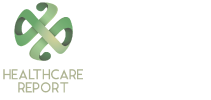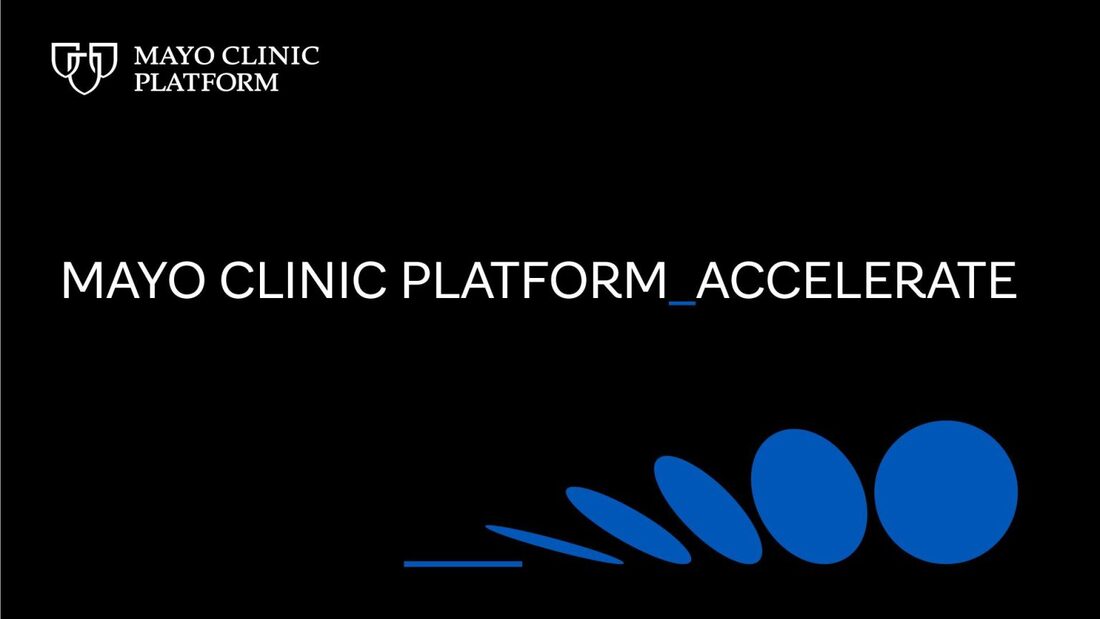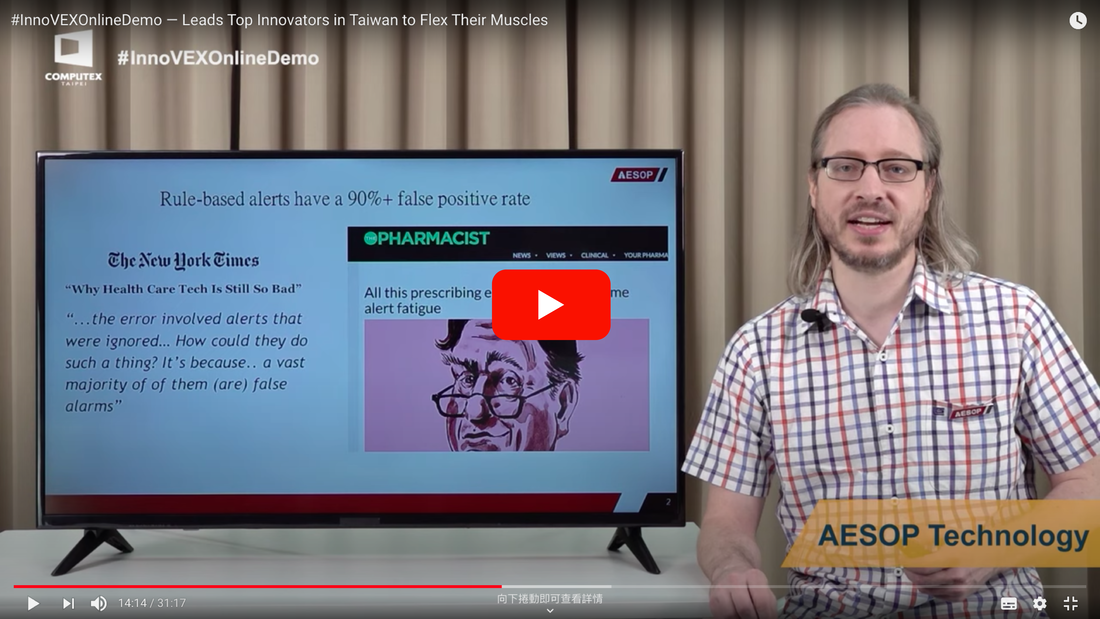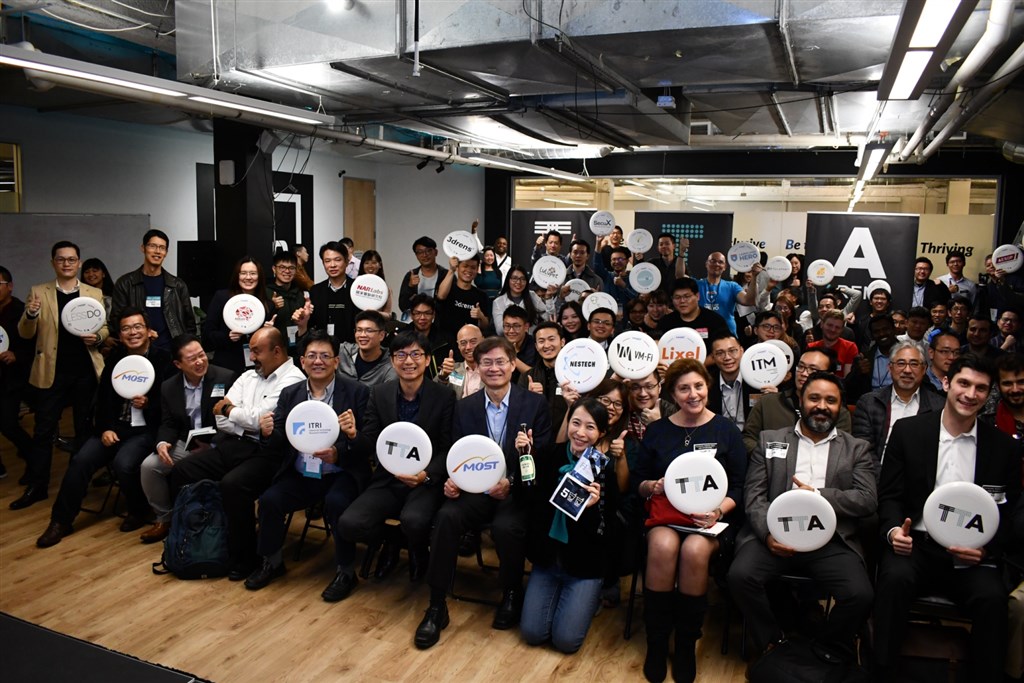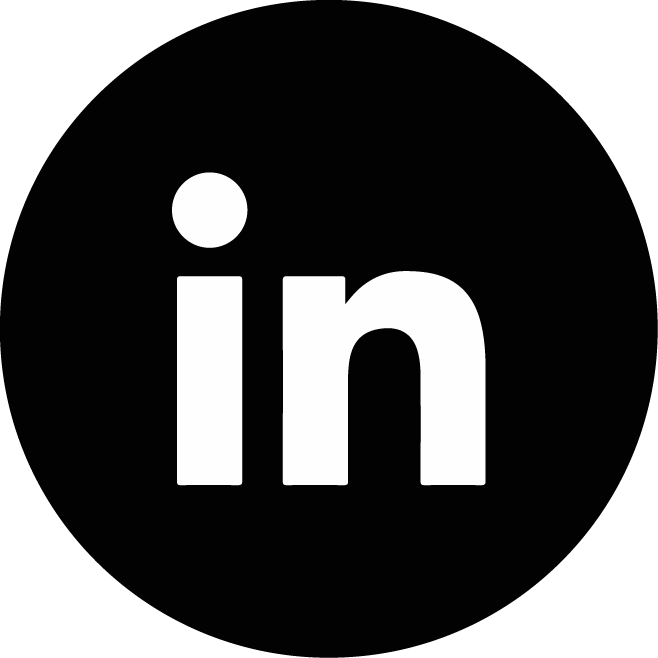A Safer Tomorrow: AESOP Technology's Battle Against Look-Alike, Sound-Alike Medication Errors10/23/2023
Medication errors are a critical problem in healthcare, and Look-Alike, Sound-Alike (LASA) medication errors pose a particularly daunting challenge. Studies show that LASA errors account for approximately one in four medication errors, making them a significant threat to patients. AESOP Technology is thus pleased to announce remarkable results from its recent clinical research, demonstrating its exceptional effectiveness in preventing LASA errors. "Accurately identifying LASA errors can be challenging due to their complex origins. Surprisingly, only about 15% of intercepted wrong drug errors during our study could be clearly categorized as LASA errors, in the sense that the medications had similar names that contributed to the mix-up. The LASA errors also did not follow predictable patterns, with only 9 out of 71 cases repeating. These findings underscore the limitations of conventional human-defined rule systems, even when augmented with reinforcement learning. RxPrime (formerly MedGuard) not only detects errors that were not previously identified but also highlights the essential need for AI with advanced medical knowledge, demonstrating a breakthrough in patient safety in healthcare," said Jim Long, CEO of AESOP Technology, explaining the intricacies of detecting medication errors, specifically LASA errors. AESOP also leverages its proprietary AI technology to overcome the limitations of traditional clinical decision support systems and address the issue of alert fatigue. "AESOP has taken additional steps to improve problem list documentation to reduce alert fatigue from LASA error detection. Many alerts contributing to physician fatigue result from poor problem list documentation within electronic health record systems. Thus, AESOP intervened at the source by helping physicians complete clinical diagnoses and documentation more effectively while prescribing," Long added. More than half of all medication errors occur during the prescription phase, making it a critical focus for improving patient safety. AESOP's innovative approach offers a beacon of hope. Applying advanced AI technology to this complex problem has yielded impressive results and holds great promise for the healthcare industry. As we address patient safety challenges, AESOP Technology's contributions stand as a testament to the potential of innovative solutions in ensuring the well-being of patients worldwide. Reference: yahoo finance
SOAP Health's conversational AI for medical encounters, risk and symptom assessment, and documentation integrates with AESOP Technology's electronic medical record data analysis for clinical decision optimization, coding, and productivity. BOCA RATON, Fla., Sept. 7, 2023 /PRNewswire/ -- SOAP Health and AESOP Technology are excited to announce a transformative partnership that will push the boundaries of AI-enhanced medical encounters. This collaboration combines AESOP's cutting-edge DxPrime and DeepDRG solutions with SOAP Health's patented and clinically validated Ideal Medical AI Assistant™ to fuse patient-reported data with Electronic Medical Record Systems (EMRs) data to create Precision Patient Profiles™ that give physicians the most comprehensive view and understanding of their patients to improve speed to diagnosis, workflow efficiency, and revenue. Steven Charlap, MD, MBA, CEO of SOAP Health, believes this alliance marks a milestone in effectively integrating AI into clinical encounters. "By incorporating AESOP's DxPrime into our existing solutions, we are elevating the realm of data-driven clinical decision-making. DxPrime's DeepDRG and Natural Language Processing capabilities are revolutionary, enhancing the quality and efficiency of data analysis and diagnostic decisions," said Dr. Charlap. "Combined with SOAP's patented and clinically validated Ideal Medical AI Assistant™, this partnership promises to enhance medical encounters, providing a robust, integrated solution that is unparalleled in today's market." Combined with SOAP's integration with Dolbey Fusion Narrate™, a previously announced partnership, the Precision Patient Profile™ will seamlessly integrate into over 100 EMRs, fortifying the power of these applications to deliver value to physicians. "The joint venture between AESOP Technology and SOAP Health promises to radically optimize physician data collection and medical coding," says Jeremiah Scholl, Co-founder and CPO of AESOP Technology. "Our shared mission is to harness the power of AI to improve patient outcomes and clinical efficiency, and this partnership is a giant leap toward fulfilling that commitment." SOAP Health's vision to reduce diagnostic errors aligns perfectly with AESOP's focus on improving the quality and efficiency of clinical decision-support and medical coding. This partnership is poised to bring significant advancements in physician practice, optimizing patient care and safety. For more details on how SOAP Health and AESOP Technology are collaborating, please visit the SOAP Health Partner Page at www.soap.health/aesop About AESOP Technology AESOP Technology harnesses advanced AI to improve the clinical decision-making process, enhance medical coding quality, and prioritize patient safety. AESOP's flagship products, DxPrime and DxCode, boast 99% accuracy in identifying and analyzing data and integrate directly into physicians' clinical workflows. DeepDRG is the unique AI approach they developed to unlock understanding of how diagnoses are typically associated with structured clinical data like lab results, medications, and procedures. To learn more about AESOP Technology, visit aesoptek.com. About SOAP Health SOAP Health is a trailblazer in medical practice AI. Through patented conversational and generative AI, SOAP's mission is to save lives by reducing diagnostic errors, accounting for over 800,000 preventable deaths and permanent disabilities each year. The company leverages the collective expertise of seasoned medical entrepreneurs, scientists, and technologists to deliver clinically validated solutions. To learn more about SOAP Health, visit soap.health. Referred: BENZINGA
AESOP Technology, in collaboration with AstraZeneca Taiwan, has unveiled Medigator, an innovative AI software designed to manage immune-related adverse events (irAEs) and enhance the effectiveness of immunotherapy. With cancer being the second leading cause of death and immunotherapy offering improved survival rates, Medigator is specially designed to address the potential challenges associated with irAEs that may deter some patients from choosing this treatment. The American Cancer Society estimates that of the 2 million new cancer cases in the U.S. in 2023, about half could be eligible for immunotherapy treatment. While this treatment stimulates the patient's immune system to fight cancer, it can potentially trigger an overactive immune response, leading to irAEs. Managing irAEs is challenging due to the unique immune responses and variability in the reaction to immunotherapy. The intensified immune response that fights cancer cells can inadvertently harm normal tissues. Effective communication is crucial to educate patients about possible side effects, readiness for assistance, and timely medical intervention. Mild irAEs can often be managed symptomatically with topical treatments, while severe cases may require discontinuing immunotherapy and administering immune-suppressing medications. To address the complexities of managing irAEs, Medigator offers real-time assistance to physicians. This tool manages the risk of irAEs and is seamlessly integrated into the Computerized Physician Order Entry system. "By harnessing the power of big data analytics, Medigator analyzes real-world patient experiences with irAEs, physicians' management strategies, and patient responses to treatment based on a dataset of 197,921 claim-based prescriptions. Using these analytical parameters, Medigator goes a step further by predicting the risk levels of different irAEs in individual patients. It provides personalized medication options by considering factors such as patient age, gender, race, chronic medical conditions, and genetic history, empowering physicians to enhance their risk management strategies in the care plan," explained Jim Long, CEO of AESOP Technology. "Medigator is an immunotherapy medication navigator designed for physicians. It aims to minimize interruptions in immunotherapy, preserve valuable treatment time and resources, and alleviate the treatment burden," said Jim Long. "The origin of the partnership between AESOP Technology and AstraZeneca Taiwan traces back to 2019 at an international biomedical accelerator co-hosted by AstraZeneca A.Catalyst Network and the National Biotechnology Research Park in Taiwan, which is dedicated to exploring new possibilities to change patients' lives. Medigator has set a promising example demonstrating patient-centric innovation by advancing shared decision-making in precision medicine," said Ben Chen, Medical Director, AstraZeneca Taiwan. The research findings of Medigator, which were recently presented at the annual meeting of the American Society of Clinical Oncology, received notable attention. AESOP Technology continues its unwavering commitment to delivering physicians with precise and personalized solutions for irAEs as immunotherapy advances. Its ultimate goal is to enhance immunotherapy treatment outcomes and improve patients' overall quality of life. Reference
Yahoo Finance Digital health startup AESOP Technology has raised a $2.95 million series pre-A round to address the growing medical and billing errors problem. The round was led by Taiwania Capital with participation from Colopl Next, 500 Startups, and BE Capital. Originally from Taiwan, AESOP started as a university spin-off from Taipei Medical University (TMU). Professor Yu Chuan (Jack) Li, the founder and current president of the International Medical Informatics Association, spent ten years before AESOP working on big data approaches to reduce medication errors. He initially applied the model to launch a product, RxPrime (previously known as MedGuard), that identifies wrong-drug errors. During the pandemic in 2020, Prof. Li officially established AESOP in the US with his former student, who grew to become CIO of a TMU-affiliated hospital, Dr. Jim Long, and former TMU Visiting Assistant Professor, Dr. Jeremiah Scholl. They worked together to broaden the types of errors the AI could identify and on products they could use to improve the US healthcare system. "Our solution is revolutionary and generalizable." CEO Jim Long described. "We have developed an AI model with an exceptional understanding of the association between diagnoses and structured clinical data like medications, lab results, and procedures." One of the first errors RxPrime identified was a 9-year-old girl accidentally prescribed an anti-schizophrenia drug for simple back pain. Another commonly prescribed error was Acetaminophen (pain killer), sometimes mistaken as Acetazolamide (glaucoma and altitude illness). "These mistakes might occur just because the two drugs have look-alike or sound-alike (LASA) names. It is horrible to think about, but errors like LASA happen in hospitals everywhere." Jim explained By tweaking the model developed for RxPrime, they quickly launched a second product, DxPrime, focusing on diagnosis errors. "Launching AESOP when the pandemic was outbreaking also made us think about using AI to save physicians time and reduce burnout." CPO Jeremiah Scholl said. "Instead of only flagging errors, we can also use it to clarify the proper diagnosis and remind missing ones. When diagnosing, physicians need to consider many factors simultaneously and then select the related and unique code from the 68,000-diagnosis code list. However, hospital information systems are more designed to support medical billing than clinical decision-making. "With DxPrime, we directly display all the plausible proper diagnoses to the physicians to consider, help them keep focused on what matters without wasting time searching or getting bothered later to fix it." DxPrime has achieved 100% user adoption based on extensive experience in physician-centric clinical decision support systems, and its solutions have been approved to be clinically relevant. Helping physicians efficiently select the correct diagnostic code also results in more accurate billing. AESOP claims that the first few hospitals using DxPrime have seen a 5% increase in reimbursement per inpatient and fewer denials from insurance companies. The fact that various venture capital investors from the US, Japan, and Taiwan participated in AESOP's pre-A fundraising demonstrates the importance that the international community places on the advancement of medical technology. AESOP can also connect different local resources and business relationships for international expansion by seizing this opportunity. AESOP will use the funding to secure their push into the US market and strengthen the tech team. This push follows them moving their headquarters to San Francisco, launching two apps in the Epic App Market, being accepted into the Mayo Clinic Platform_Accelerate, and publishing a paper with Harvard University last year demonstrating the portability of their model at US hospitals. Reference: PR Newswire AESOP Technology announced that they have been accepted into Mayo Clinic Platform_Accelerate, a 20-week program that helps early-stage health tech AI startups get market-ready. Participants are selected through a competitive screening process where a panel of Mayo Clinic leaders reviews them from the clinical and operational perspective, led by John Halamka, MD., President of Mayo Clinic Platform. "It's an excellent opportunity for a medical AI startup like us. Data is the fuel from which everything grows into power, and this program provides de-identified patient datasets and tools to help us validate our solutions," says Jeremiah Scholl, the CPO of AESOP Technology. "This practical experience will help us go even further in developing better products. The fact that we get to be mentored by Mayo Clinic's reputable experts is inspiring." 'AESOP', which stands for 'AI-Enhanced Safety of Prescription', is working to make physician data entry easier, faster, and less error-prone using machine learning on 3.2 billion data sets. The company has developed products capable of this. One is RxPrime which detects wrong drug errors by checking if medications match patients' diagnoses, age, and gender. Errors can happen at any stage of the medication-use process, but more than 50% of them occur during the prescribing phase. RxPrime is able to detect potential and unexplained errors in prescriptions and provide optimal recommendations, even for the look-alike-sound-alike medication errors. It offers just-in-time decision support without interfering unnecessarily with the clinical consultation process. The other is AESOP Technology's latest clinical documentation improvement tool, DxPrime, making it easier for doctors to input correct diagnoses into electronic health record systems. This task can be challenging as there are 68,000 different diagnosis codes under the International Classification of Diseases (ICD). The ICD codes were designed to support insurance and billing rather than clinical medicine. "Medical professionals are more overwhelmed with their workload after the pandemic. How AI can support them gains more importance," says Jim Long, the CEO of AESOP Technology. "AI is transforming the healthcare industry in a variety of ways, like any other industry. Healthcare has unique challenges, and this program will help us be more grounded." As a participant of the Mayo Clinic Platform_Accelerate, AESOP Technology is glad to expose themselves to real-world applications, which helps cultivate future growth in this rapidly progressing field. As part of the program, Mayo Clinic will take an equity position in the startup. Reference: HEALTHCARE REPORT ROCHESTER, Minn. — Mayo Clinic Platform_Accelerate has announced its second cohort of health tech startups, including national and international businesses. The program will help seven companies develop and validate their artificial intelligence-driven health care products or solutions and advance their business plans. The immersive, 20-week program offers participants access to Mayo Clinic experts in regulatory, clinical, technology and business domains with a focus on AI model validation and clinical readiness. Technology experts from Google and Epic also will provide workshops for the participants. "The only way we can transform health care is by bringing together clinical experts with technology innovators," says John Halamka, M.D., president of Mayo Clinic Platform, a strategic initiative to improve health care through insights and knowledge derived from data. "Our Accelerate program combines emerging companies with breakthrough ideas, leaders from Mayo's clinical practice and our unique 'data behind glass' approach to algorithm development," Dr. Halamka says, describing the secure environment that allows companies to build algorithm models they can use for innovation, but the data never leave the Mayo Clinic Platform. The program will help participants explore ways to improve health care in a variety of areas:
Chosen from a competitive process, each company receives a benefit package that offers:
As part of this in-kind investment, Mayo Clinic Platform will have an equity position in the companies. "In our first cohort, we already have seen these companies receive attention from potential investors, health care providers and others who want to support their work," says Eric Harnisch, vice president, Partner Programs, Mayo Clinic Platform. "We are excited to further these efforts with the second group of companies." The inaugural cohort of four companies recently finished the program. Applications for the third Mayo Clinic Platform_Accelerate cohort will be open soon and reviewed on a rolling basis. About Mayo Clinic Platform Founded on Mayo Clinic’s dedication to patient-centered care, Mayo Clinic Platform. enables new knowledge, new solutions and new technologies through collaborations with health technology innovators to create a healthier world. To learn more, visit Mayo Clinic Platform. About Mayo Clinic Mayo Clinic is a nonprofit organization committed to innovation in clinical practice, education and research, and providing compassion, expertise and answers to everyone who needs healing. Visit the Mayo Clinic News Network for additional Mayo Clinic news. Reference: Mayo Clinic California-based medical AI startup Aesop Technology, which has an R&D office in Taiwan, has recently unveiled its latest clinical documentation improvement tool that helps coders spot incorrectly coded diagnoses or procedures. DxPrime provides suggestions to support medical data entry. The CDI tool is based on a machine learning model that has been trained based on a data set of some 3.2 billion patient visits. According to Aesop Technology, their latest solution for medical coding harnesses AI to "efficiently compensate for traditional CDSS and NLP weaknesses to find correct or missed diagnoses". WHY IT MATTERS Now available on digital health marketplace Olive Library, DxPrime provides information on missing and wrongly coded diagnoses or procedures to easily correct patients' charts. With incorrect patient records, Aesop claims, patients could be given improper discharge instructions, thus receiving poor after-discharge care. For providers, this could lead to a wrong estimate of their patients' length of stay and wrong code insurance claims, which could ultimately result in denials and revenue losses. Aesop emphasized that errors in diagnosis input are difficult for physicians to avoid due to the gap in their knowledge of coding systems. Currently, the 10th revision of the International Statistical Classification of Diseases and Related Health Problems (ICD-10) has 14,400 diseases included in its base classification, 68,000 diagnosis codes under ICD-10-CM and 87,000 procedural codes under ICD-10-PCS. THE LARGER TREND Last month, Aesop's medication decision support tool RxPrime was launched on Olive Helps, a desktop platform for healthcare IT developers. The solution analyses inpatient data using patterns from prescriptions and flags potentially inappropriate prescriptions that do not match a patient's diagnosis. In other news, Aesop partnered with Taipei Medical University, Harvard Medical School and Brigham and Women's Hospital last year for a study that ran its machine learning model in EHR systems in the United States. It was found that the model, which provides adaptive suggestions to help doctors better complete their prescriptions, had demonstrated good international transferability. ON THE RECORD Jim Long, CEO of Aesop, said: "Physicians, CDI team, and coders have to spend a lot of time poring through medical records to find the key clinical diagnoses among the vast amount of information available. After that, they have to follow a series of inefficient steps on the computer to complete the input process, and search functionality for ICD codes often is not helpful. The whole process is complex, time-consuming, and error-prone". When using DxPrime, he claimed, doctors were able to notice incorrect code complications. "By assisting them in inputting the proper diagnoses, our partners have seen an increase in revenue of 5-10% per inpatient," Long said. Reference: MobiHealthNews Medical AI start-up Aesop Technology announced a new partnership that made their new product, DxPrime, available in the Olive Library. DxPrime provides physicians and clinical documentation improvement (CDI) teams with information about missing and wrongly coded diagnoses and procedures to correct the patient's chart in just a few clicks. It makes completing discharge summaries, prioritizing work for CDI teams, and medical coding much easier, faster, and less error-prone. If the patient record is incorrect, you cannot code correctly. Completeness, precision, and validity of medical documentation are critical for all healthcare stakeholders. Without correct patient records, patients could receive improper discharge instructions and a sub-optimal continuum of care. Providers also can struggle to estimate the length of stay and code insurance claims correctly, resulting in denials and loss of revenue. Approximately 10% of inpatient claims are denied, of which more than 85% (or about $35 billion) result in unnecessary losses. Many of these denials occur because of errors in the patient record that occur upstream from the claims process. Diagnosis input errors are difficult for physicians to avoid because the knowledge of coding systems is different from what they need to learn to provide great patient care. Modern medicine's complexity has caused 14,400 diseases to be included in ICD-10, further classified into 68,000 ICD-10-CM and 87,000 ICD-10-PCS codes. "Physicians, CDI team, and coders have to spend a lot of time poring through medical records to find the key clinical diagnoses among the vast amount of information available," said Jim Long, CEO of AESOP. "After that, they have to follow a series of inefficient steps on the computer to complete the input process, and search functionality for ICD codes often is not helpful. The whole process is complex, time-consuming, and error-prone. When the physicians input the improper diagnosis, it also has downstream implications. "When using DxPrime, we have helped physicians often notice they did not correctly code complications such as urinary tract infections and respiratory failure. By assisting them in inputting the proper diagnoses, our partners have seen an increase in revenue of 5-10% per inpatient." State-of-the-art machine learning assisted physician data entry. DxPrime provides high-quality suggestions to support physician data entry based on a machine learning model (published in the Healthcare journal) that has been run on top of data from 3.2 Billion patient visits, including vast amounts of structured information. It allows DxPrime to use items from the patient record like lab test results and medications ordered when predicting a diagnosis. This comprehensive model utilizes artificial intelligence to efficiently compensate for traditional CDSS and NLP weaknesses to find correct or missed diagnoses. Referred from: PR Newswire U.S.A., Jan. 31, 2022 - Olive, the automation company creating the Internet of Healthcare, today announced the winners of the first-ever Hack for Health contest. In partnership with Rotera, Olive held the contest to encourage developers to build Loops (think apps in an app store) that will change the way healthcare employees work by improving efficiency, reducing the scope for errors and burnout, and enhancing productivity — all to optimize the patient experience. Olive designed its Hack for Health contest to solve healthcare’s biggest problems through collaboration with the developer community. Participation is open to any individual developer, startup, health system, or enterprise technology company. Winning Loop submissions are published on Olive’s platform, giving developers full access to Olive’s growing payer-provider network. While any developer who publishes a loop on Olive’s platform receives 85% of the revenue generated from their Loop(s) once published, Hack for Health grand prize winners also receive tiered cash prizes up to $10,000, industry speaking engagement opportunities, a 60-minute pitch meeting with the Olive Ventures team, an Oculus Quest 2, YubiKey, and a 30” curved monitor. Olive also provides opportunities for its employees to develop Loops as part of an internal contest with its own set of prizes. “Olive created healthcare’s first true platform. We wanted to create an event that encouraged a wide range of developers to come build on it to grow our ecosystem of people working together to transform healthcare,” said Patrick Jones, Executive Vice President, Partnerships at Olive. “Our first-ever Hack for Health contest, in partnership with Rotera, was the perfect way to introduce developers of all sizes to Olive and create new solutions that will help change the way healthcare workers work.” Olive selected the following five Loops as the grand prize winners based on their functionality, innovation, outcome improvement, and bettering of diversity, equity, and inclusion among underrepresented healthcare workers and patients:
“Medecipher has been eager to develop on Olive’s platform, and Hack for Health provided us with a unique collaborative opportunity to do so! By leveraging Olive’s platform, we were able to quickly implement a clinician-facing decision support tool (our Loop) that provides critical operational insights from our models and algorithms,” said Stephanie Gravenor, co-Founder and CEO at Medecipher. “We’re honored to be named a winner of Olive’s first-ever Hack for Health contest with our Predictive Staffing Loop and look forward to continuing to refine our use case and leverage Olive to expand our impact.” Reference: Olive
Ten startups from the Taiwan Tech Arena (TTA) will participate in the program's first Global Innovation Pitch Showcase, produced in partnership with Berkeley SkyDeck, UC Berkeley's highly competitive global startup accelerator. Silicon Valley VCs, angel investors and industry professionals will attend the virtual event. Interested investors may register to join the pitch Showcase here.
TTA, funded by Taiwan's Ministry of Science and Technology, is focused on building a vibrant tech ecosystem of Asian startups. Each year, they select a cohort of up to 30 startups to participate in the TTA Silicon Valley accelerator, with eight of the startups participating with SkyDeck as part of its Global Innovation Partners program. This event marks the first time TTA is producing a pitch showcase with SkyDeck.
"We are proud to connect the outstanding Taiwanese tech talent with the impressive entrepreneurial community of Berkeley SkyDeck," said the TTA Silicon Valley office. "Since 2016, we have brought more than 150 innovators from Taiwan to the U.S. to build strong international relationships and connections and attract investment. And it's noteworthy that most of the startups' businesses stem from academia. To date more than half of these Taiwanese startups have raised money. With the new Showcase, we're thrilled we can share their talents, ideas and innovations on a global stage." SkyDeck's Global Innovation Partner Program serves as a bridge for global startup teams as they participate in the SkyDeck entrepreneurial ecosystem and bring their ideas to the U.S. market. A limited number of startups from outside the U.S. are selected to participate in the partner program alongside the SkyDeck Batch (cohort) and Pad-13 (incubator) teams. "Working closely with TTA has been a wonderful experience for all of us," said Caroline Winnett, Executive Director, Berkeley SkyDeck "Not only are the teams from Taiwan getting an immersive learning and networking experience at SkyDeck, they will return home ready to launch and create economic opportunities in their communities. We look forward to helping jumpstart these startups here in the U.S. and then seeing how they grow." The Aug. 19 Showcase will feature the following startups:
Reference: yahoo finance
A study has demonstrated the international transferability of a Taiwanese artificial intelligence model for detecting medication errors in EHR systems in the United States. The study was jointly conducted by Taiwan-based medical AI startup Aesop Technology, Taipei Medical University, Harvard Medical School and Brigham and Women's Hospital. Its results were announced last week in a press release. WHY IT MATTERS The "biggest challenge" in data-driven medicine is the successful implementation of data-driven applications in clinical practice from local to global settings without compromising patient safety and privacy, according to Dr Yu-Chuan Jack Li, a professor at Taipei Medical University. The study, whose findings were published in the Journal of Medical Internet Research - Medical Informatics in January, found good transferability of Aesop's machine learning model in the EHR systems of two training schools under Harvard Medical School – Brigham and Women’s Hospital and Massachusetts General Hospital. A federated learning (FL) approach was applied to the model which enhanced its performance. The said approach is an emerging technique that addresses the issues of isolated data islands and privacy. "FL provides the solution by training algorithms collaboratively without exchanging the data itself," Dr Yu-Chuan said. "The study has shown that the model trained by federated learning achieves remarkable performance comparable to the other two models trained by individual data sets," Aesop Technology co-founder and CEO Jim Long also said. Incorporated in Aesop's MedGuard system, the AI medication safety model was trained using the 1.3 billion prescription data set from the National Health Insurance Administration in Taiwan. In the statement, Aesop said its system can "immediately" provide adaptive suggestions to help doctors better complete their prescriptions. The AI model has since been expanded to eastern and western hospitals in the US. THE LARGER TREND Despite the wide adoption and optimisation of EHR systems in US hospitals, those systems still pose risks given varying safety performance, according to a 2020 study by researchers from the University of Utah and the Brigham and Women’s Hospital. Medical errors are costing the US around $20 billion each year, leading to over 250,000 deaths. These can occur at any stage of the medication process with errors in prescribing happening half of the time. The use of an AI system in preventing medication errors was already validated as early as 2017 by researchers at Harvard Medical School. In the same year, MedAware, the Israel-based startup which developed the algorithmic system, raised $8 million to scale its AI-powered solutions. ON THE RECORD "Reducing medication errors at the source is crucial. However, to help physicians be better informed and make better decisions, they need more accurate suggestions and alerts. This is where machine learning can help to make better decisions and improve patient safety and quality of care," said Dr David W. Bates, Chief of General Internal Medicine and Primary Care at Brigham and Women's Hospital and Professor of Medicine at Harvard Medical School. Reference: MobiHealthNews New study paves the way for collaboration on artificial intelligence modeling and medication error reduction globally Researchers at Harvard Medical School, Brigham and Women's Hospital, Taipei Medical University, and Aesop Technology, a Taiwan-based startup, announced today the results of a new joint study into the international transferability of machine learning (ML) models to detect medication errors. The results were recently published in the Journal of Medical Internet Research - Medical Informatics. Working to Reduce Medication Errors Medication errors are a growing financial and healthcare burden that results in economic costs of around US$ 20 billion and more than 250,000 deaths annually in the U.S. alone. Medication errors can occur during any stage of the medication process, including prescribing, dispensing, administration, and monitoring, with errors in prescribing accounting for 50% of the total. When medicating patients, physicians go through complex decision-making processes to accurately write a prescription. First, they must clearly define the patient's problem and list the therapeutic objective before selecting an appropriate drug therapy based on age, gender, and possible allergies. They must also consider dosing, drug-drug interaction, potential discontinuation of the drug, drug cost, and other therapies — and all of these need to be done instantly and simultaneously. "Reducing medication errors at the source is crucial. However, to help physicians be better informed and make better decisions, they need more accurate suggestions and alerts. This is where machine learning can help to make better decisions and improve patient safety and quality of care," said Dr. David W. Bates, Chief of General Internal Medicine and Primary Care at Brigham & Women's Hospital and Professor of Medicine at Harvard Medical School. For technology to assist in solving these problems, it is critical that machine learning understands these variables. For this to be successful, data must be properly collected, organized, and maintained. Taiwan is one of the world's few countries with a centralized and well-structured electronic health records (EHRs) system organized by Taiwan's National Health Insurance Administration. This gives it a competitive edge in developing medical AI systems that use machine learning based on medical record data. The Future of Healthcare: Global Collaborative Intelligence The study was conducted in partnership with Harvard Medical School, Taipei Medical University, and Aesop, the first federated learning model for preventing medication errors that are optimized by combining models from multiple countries. "Our AI model for medication safety has been trained by one of the world's largest prescription databases, 1.5 billion well-coded prescriptions from the U.S. and Taiwan, to learn the association between diagnosis, medication, and complex prescribing behavior of doctors from different countries. The study has shown the model trained by federated learning (FL) achieves remarkable performance comparable to the other two models trained by individual data sets," said Jim Long, CEO, and Co-founder of Aesop Technology. Through implementing, the system can immediately provide adaptive suggestions to help the doctor better complete the prescription whenever physicians prescribe diagnoses or medications that cannot be explained. The new model has been deployed in several hospitals and has since been expanded to the eastern and western United States to catch medication errors before they make an impact. "Data-driven medicine demands huge and diverse medical data sets. The biggest challenge is successfully implementing data-driven applications in clinical practice, from local to global, without compromising patient safety and privacy. FL provides the solution by training algorithms collaboratively without exchanging the data itself." said Dr. Yu-Chuan Jack Li, President-elected of the International Medical Informatics Association (IMIA) and Distinguished Professor of Taipei Medical University. The result is a breakthrough in the international transferability of medical AI. It demonstrates a way to provide practical data-driven prescribing support to improve patient safety in the U.S., even though it could be challenging to obtain data to develop these systems locally. Referred from: BENZINGA
Digging for data Any AI system needs to learn from data – the more the better. Taiwan has a trove of data to feed on thanks to its National Health Insurance (NHI)system, which was launched in 1995 and covers more than 99% of the population. In recent years, the government has allowed access to this extensive data for research and development. One startup to take advantage of this opportunity is AESOP Technology, which has offices in Taipei, Berkeley, California, and Cambridge, Massachusetts. AESOP is trying to reduce a major risk to patients’ health globally: medical errors, specifically prescription errors. In Taiwan, they analyzed NHI data and found at least 3 million incorrect prescriptions each year, from incorrectly filled out forms to prescribing the wrong drugs or dosages. “Everyone thinks hospitals are high-tech, but in hospitals, the staff records patients’ status on white boards,” said Jim Long, CEO of AESOP. “Doctors spell drug names wrong – even common drug names that sound like and look like other drug names.” Traditionally, the industry has used rule-based reminders, which look at one or two variables – such as whether two specific drugs are prescribed together. A lot of noisy alerts are generated that physicians often ignore or turn off. AESOP is unique in that it considers many more variables – from four to more than 20 – when deciding whether to send an alert. These include a patient’s age, gender, the hospital department involved, and the diagnosis. Its system uses machine-learning to flag outliers, signaling a potential mistake. Long and his business partner founded AESOP – a spin-off startup from Taipei Medical University – last year but had first started trying to address the problem of prescription errors 20 years ago. Two developments over the past five years have been instrumental in making this technology possible, says Long. The first is greater computational power. Given that there are 60,000 possible clinical diagnoses adjusted for patients’ gender, ages, medication, and so on, just five years ago Long and his team estimated that “to finish a round of machine learning would take 150 years.” The second key change was the opening of Taiwan’s NHI Administration’s database to biotechnology and healthcare firms through academic research cooperation. Since 2016, such access to anonymized healthcare data for Taiwan’s population going back to 1995 has been available upon application. This is much more than the maximum 50 million prescriptions AESOP is allowed to access and purchase from public sources in the U.S.,Long said. In a bid to protect privacy, researchers and companies are not allowed to take any notes inside the data center in Nangang. They can only use the center’s computers and then provide the result of their searches to the staff, who then check it and send it to them. AESOP’s MedGuard system has been in use in three hospitals in Taiwan since 2017. This year, the company has signed up more hospitals in Taiwan, and physicians at Harvard Medical School’s Brigham and Women’s Hospital are also giving the system a trial. “Our target will still be the U.S.,” says Long. The U.S. is a bigger market than Taiwan and uses the same drug coding system and language when prescribing, he says. One prescription error it caught in Taiwan involved a 9-year-old girl with lower back pain. The physician had meant to prescribe Solaxin, a muscle relaxant. Instead, he chose Solian, an antipsychotic used to treat schizophrenia. The drug should not be prescribed to children and the dosage far exceeded the maximum recommended amount. AESOP’s MedGuard system flagged the error when it recognized that the drug wasn’t being prescribed as it had been in the past. Reference: Taiwan Business TOPICS Berkeley SkyDeck's First-Ever Remote Cohort to Present their Moonshot Startups at Virtual Demo Day9/15/2020
SkyDeck adapted to the pandemic with a robust, remote program so 21 startups are now ready to take their companies to the next level. Berkeley SkyDeck, UC Berkeley's startup accelerator, today hosts its Demo Day featuring 21 innovative global startups specializing in a wide range of industries including AI, enterprise software, robotics, health, bioscience, and consumer solutions. Due to the COVID-19 pandemic, this is the first time SkyDeck's Demo Day will take place virtually. In fact, instead of coming together in the Bay Area, this cohort is the first that ever participated in the entire accelerator program remotely from their home locations -- around the U.S. and around the world from such countries as Armenia, Canada, Chile, India, Israel, Russia, Taiwan, and Turkey. "This year has been one like no other with many challenges, and I could not be more proud of our startups for their grit, determination, and perseverance to succeed," said Caroline Winnett, Executive Director, Berkeley SkyDeck. "Major challenges force us all to be even more innovative and creative in the way we problem-solve. We definitely saw this in our founders." "We recognized early on that startup founders would be concerned about their ability to fundraise while COVID-19 continues to wreak havoc on the economy. To ensure our startups would have a leg up, we doubled down and have been working even more closely with them to ensure that they are getting strong access to top tier investors that care about what they are building," said Chon Tang, Founding Partner of the Berkeley SkyDeck Fund. AESOP Technology AESOP Technology reduces medication errors using machine learning run on more than 2 billion prescriptions. They do this by providing decision support and reporting that flags inappropriate prescriptions, where the medications prescribed do not match the diagnosis, age, and gender of the patient. They also supply a medication and diagnosis suggestion engine that is being used to support intelligent workflow tools inside Electronic Patient Record systems. Referred from: yahoo finance TAITRA launched the first #InnoVEXOnlineDemo through COMPUTEX Facebook and YouTube channels today to show the achievements of tech startups in Taiwan. Partnering with MOST (The Ministry of Science and Technology) of Taiwan, TAITRA invited five outstanding startups to demonstrate their innovative solutions of healthcare, AI, image analysis and blockchain at #InnoVEXOnlineDemo. The COVID-19 pandemic sparked off crisis to the world, but it also acts as a massive disruptor that precipitates new opportunities for tech startups to thrive. According to Numbeo, Taiwan ranks #1 in the world’s health care index and has built a solid value chain in the biomedical industry. #InnoVEXOnlineDemo hence presents three medical startups in Taiwan with different solutions.
Moreover, tech startups focusing on unmanned systems and touchless economies are booming amid the COVID-19 pandemic as well.
By hosting online events such as #COMPUTEXOnlineTalks and #InnoVEXOnlineDemo, TAITRA devotes to build an O2O platform to connect the tech industries and to engage with all stakeholders despite the impact of the COVID-19 pandemic. For more information about next edition of COMPUTEX and the upcoming online events: Reference: COMPUTEX Taipei, Jan. 6 (CNA) A delegation of 28 Taiwanese startups organized by the Ministry of Science and Technology (MOST) will attend the 2020 Consumer Electronics Show (CES) in Las Vegas to gain exposure for their brands, the ministry said Monday. The 28 startups are largely involved in providing solutions in health care, internet security and smart city development, and their presence at the upcoming CES will demonstrate Taiwan's capability for innovation, the ministry said in a statement. The trade show, to be held from Jan. 7 to Jan. 10, will welcome about 4,500 tech exhibitors from all over the world. Among the Taiwanese startups are sink care product vendor AESOP Technology, health care services providers FaceHeart Inc. and Ahead, smart transportation control solutions provider 3 Drens, and Language Hero, which specializes in artificial intelligence of things (AIoT) technologies. The ministry said the 28 start-ups will largely come from its Taiwan Tech Arena (TTA) initiative, which is aimed at cultivating tech startups by helping them raise funds to grow. Before attending the CES, the delegation held a 2020 Taiwan Demo Day in Silicon Valley on Jan. 3, and the TTA program invited potential investors to meet with the startups, the ministry said. Deputy Science Minister Hsu Yu-chin said in the statement that the 2020 Taiwan Demo Day focused on innovation and matchmaking strategies in the United States and Taiwan and strengthened the startups' chances of extending their reach globally. The 28 startups also took advantage of the event in Silicon Valley to demonstrate their technologies as a warm-up for CES, Hsu said. The government-sponsored Industrial Technology Research Institute (ITRI) said, meanwhile, that it will also attend the 2020 CES and exhibit its latest artificial intelligence applications for use in health care, smart robots and smart displays. In December, the National Development Council (NDC), the top economic planning agency in Taiwan, said the country's national logo, Startup Island TAIWAN, will be displayed globally for the first time at the 2020 CES. Taiwanese startup companies showcasing their innovations at the CES will unanimously carry the logo in a bid to promote Taiwan, the NDC said. (By Wu Po-wei, Chang Chien-chung and Frances Huang) Reference: FOCUS TAIWAN  Barbara Jorgensen Taiwan start-ups have some digital healthcare technologies they’d like to bring to the United States. They have a few hurdles to clear first. For many foreign companies, unique technology isn’t enough to secure investors in America. The medical technology market is highly regulated, and venture capitalists remain very cautious about where they invest their money. Taiwan is actively involved in promoting and commercializing home-grown technology. “Taiwan has an established record for innovation in semiconductors and now we are targeting AI,” said Chun-Yi Tu, deputy director general for Taiwan’s Department of Academia-Industry Collaboration and Science Park Affairs. A late-September forum in Boston focused on developments “devoted to improving the well-being of patients.” The forum brought nine start-ups — Reliance Biosciences; FaceHeart; Aesop Technology; Heroic-Faith Medical Sciences; Summed Taiwan; AHEAD; RiCHE Biotech; Arvin Bio-Medical Research and MTAMTech Corp. — together with venture investors, technology developers and potential end-users. The companies have created solutions that advance the digital healthcare market through AI, data analytics, and materials or manufacturing break-throughs. The market for digital health is global and is expected to reach $509.2 billion by 2025, according to Grand View Research. Still, venture investors recommend start-ups focus on a single market as their technology gains traction. Emerging companies may over-reach, according to Geoff DaCosta, director for business development and licensing at Medtronic. “Digital health is global, but if you’ve had traction in China — by virtue of your location — you shouldn’t go after the U.S. at the same time. China is a unique market and that is a positive — it’s good to be in that market.” DaCosta was one of five venture experts that outlined the challenges of and options for breaking into the U.S. healthcare industry. For example, companies must be familiar with U.S. regulations governing medical technology. But first there are some very basic considerations. Distance is an issue for many potential investors, according to David Uffer, a partner at Alira Health. “Most venture funds are willing to invest anywhere, but start-ups really need the ability to meet face-to-face,” he said. “It’s hard to get funds because investors want to be there — sitting on boards, for example. Having a presence in the U.S. also helps.” Demand for digital health in North America is high due to a favorable environment, Grand View said. Europe is expected to hold the second position in the global market as more efforts are made to develop the healthcare industry in Europe. The companies pitching at the Boston tech forum are largely focused on contact-less devices, remote monitoring and diagnostics, or preventing errors. FaceHeart has developed technology that monitors heart rate and blood pressure through facial imaging. Its phone-based app allows patients to transmit data and to immediately seek help. Heroic-Faith Medical Science offers an AI-powered mobile solution that can monitor respiration. Arvin has created a wearable system that can identify and monitor heart attacks and transmit data as patients seek help. Availability of such apps in smartphones makes it easier for healthcare professionals to access patient information and diagnose diseases, according to Grand View. Furthermore, increased penetration of smartphones and internet connectivity are the key factors driving the digital healthcare market. Protect your IP Greg Sieczkiewicz, executive partner/chief IP counsel for MPM Capital, said IP protection is critical for start-ups as they seek funding and partnerships. “IP has a way of getting out while you are discussing your technology with potential partners,” he said. “Understand how your technology is being used and be ready to protect your IP.” Foreign start-ups are often ill-prepared to pitch to venture investors, said Luis Barros, managing partner of Leading Business Ventures. “Before you get here you have to do a lot of research at home,” he said. “Come ready to play in the big leagues.” Digital healthcare itself is a problematic market, investors said. “Business models in digital health are hard to figure out,” said Uffer, adding: “There’s a difference between wellness and healthcare, and there’s always a tug-of-war with insurance companies over who is going to pay for services.” Monetizing new tech remains a challenge, according to Sieczkiewicz. “I’d recommend figuring out who will pay for such products and services and then work backward from there.” AI in healthcare Al plays a leading role in diagnostics and error-prevention systems developed by Taiwanese start-ups. Reliance Biosciences has developed blood-based testing for cancer and Alzheimer’s. Aesop built an AI system that alerts doctors of inappropriate prescriptions. RiCHE converts data from samples — such as blood — to easily-read photothermal patterns, and AHEAD provides AI-assisted hematologic diagnostic and disease-assessment tools. Most of these companies are still in the process of gathering clinical data — a “must-have” for funding or partnership in the United States. The U.S. government itself invests in promising technology and offers other incentives such as R&D credits. Universities are major research centers, Barros pointed out, and start-ups could enlist faculty members as advocates for their technology. Connecting directly with a U.S. company is also a preferred route into the market. Venture investors view Taiwan as an established source of high-quality manufacturing and innovative technologies. Summed Taiwan offers vertically-integrated manufacturing services and MTAMTech has developed a hollow-fiber self-assembled substrate. Moreover, Uffer doesn’t see a cultural gap between Taiwan and the U.S. “What I see is an understanding of global markets,” he said. “But regulations and funding in the U.S. are difficult.” Reference: EE Times Asia Medical errors are the 3rd leading cause of death. One in four patients are harmed while receiving healthcare. Medication errors cost a lot and kill a lot. They are a costly but preventable problem. MedGuard, a system developed using 1.3 billion medical big data and artificial intelligence, helps to prevent medication errors. MedGuard delivers proactive protection and recommendations and has been tested in a live clinical trial at three teaching hospitals. Medical errors were the third leading cause of death after heart disease and cancer in 2013, and the eighth leading cause of death in 1999. Unsafe medication practices and medication errors are leading causes of injury and avoidable harm in health care systems around the world. According to a WHO report, the estimated annual cost associated with medication errors is US$42 billion. One in four patients are harmed while receiving healthcare. Prescription errors happen every two seconds. The World Health Organization launched a global effort to halve medication-related errors in 5 years, 51% of which are generated by prescription. Computerized physician order entry systems (CPOE) have been widely implemented in Taiwan and in most developed countries. A CPOE is the most critical and useful point to prevent medication errors. For example, diabetic patients should be prescribed Euglucon (to lower blood sugar) but Euclidan (to dilate blood vessels) was mistakenly prescribed more than 1,000 times in one hospital within one month; this error has potentially happened in other hospitals. In order to decrease medication errors or near misses, numerous hospitals have developed a rule-based function on CPOE to clinically support physicians when they submit prescriptions. However, there are limitations to its use. For example, there is a 50-90% override rate for alerts, and it is not cost-effective; in other words, it is entirely useless to physicians. Prof. Yu-Chuan Jack Li, the Dean of the College of Medical Science and Technology, Taipei Medical University, has dedicated himself to improving patient safety and quality for almost 30 years. He has started a Medical AI company, AESOP Technology, and has developed MedGuard, a system based on 1.3 billion medical big data and artificial intelligence (we call it appropriateness of prescription or AOP and have many publications in known journals), as an optimal solution for medication errors. It has been tested in a live clinical trial at three teaching hospitals. Besides direct cost results from errors, hospitals always suffer from punitive fees from the National Health Insurance Bureau (NHI), which is the single payer insurance agency in Taiwan, with an annual average of NT$5 million. For example, a young girl with a cervical problem was prescribed Filgrastim, which was defined as inappropriate by NHI, resulting in a NT$6.6 million fine for a regional hospital. With MedGuard, such errors can be reduced by highlighting inappropriate medication and potential missing diagnoses, and thus the quality of the medical records can be improved, or errors prevented and costs saved. Simulation based on real reminder analysis shows that MedGuard saves costs from NT$3-6 million on average per year by improvement of the quality of prescriptions. Taiwan has the highest ranked healthcare system and high quality infrastructure in the world. 100% electronic medical records brings Taiwan strength to export digital health technology. AESOP aims to utilize Taiwan’s strength in dealing with healthcare problems. As a pioneer of Al in Medicine, Prof. Yu-Chuan Jack Li believes that next-generation medical Al will be the optimal solution for patient safety and prevention ("Earlier Medicine"). About AESOP Technology AESOP Technology, a spin-off from Taipei Medical University, was founded by experts in medical informatics, physicians and pharmacists since 2019. Their mission is to increase patient safety and quality by bringing next-generation medical AI to prescriptions. Reference: Taiwan Research Highlight |
|
AESOP TECHNOLOGY
|
 |
© AESOP Technology 2024







